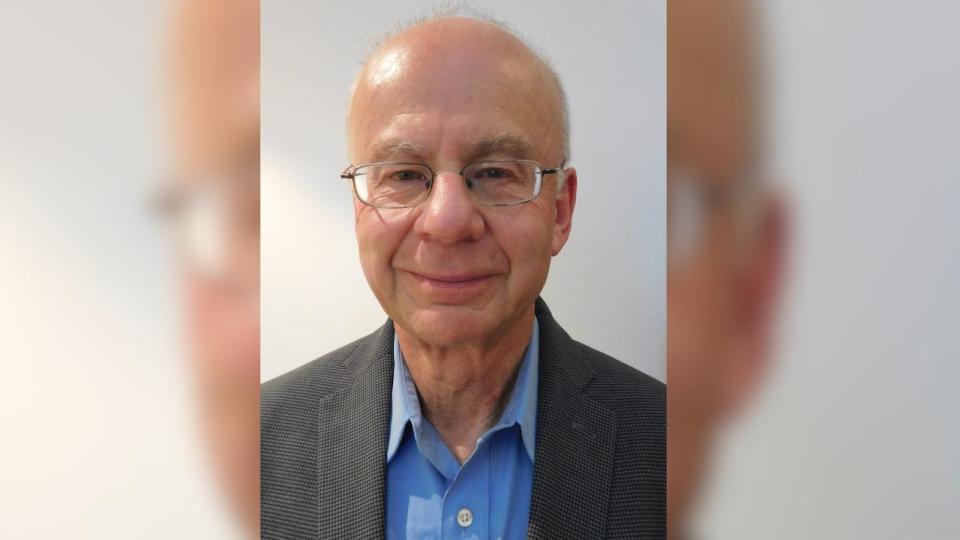Alberta creating 2 mental health and addictions organizations, including Crown corporation

The provincial government unveiled Tuesday the first plank in its plan to reshape Alberta Health Services (AHS) into four distinct entities, outlining two new organizations that will manage delivery of mental health and addiction services.
A new entity, Recovery Alberta, will be charged with delivering the mental health and addictions services currently handled by AHS. Operations are expected to move from AHS to Recovery Alberta by July 1 after legislation is passed.
In addition, the province said it would create a new Crown corporation, dubbed the Canadian Centre of Recovery Excellence, or CORE.
That project, which is intended to be operational by the summer, is tasked with building recovery-oriented systems of care "by researching best practices for recovery from around the world, analyzing data and making evidence-based recommendations."
The initial operating budget for CORE is $5 million, from this year's budget. It's anticipated to be the ongoing budget for the organization. However, that could increase if more funding is required to support operations, according to a spokesperson in the mental health and addictions ministry.
"Today's announcement of these two organizations marks an important step forward in transforming our health-care system," Alberta Premier Danielle Smith said in making the announcement.
'Confusing and potentially chaotic,' says UNA
In a statement, Heather Smith, president of the United Nurses of Alberta (UNA), said the premier's announcement of Recovery Alberta left more questions than answers, calling the changes "confusing and potentially chaotic."
"Every AHS nursing employee will be impacted directly or indirectly by this decision to hive off mental health and addiction services into a separate organization, and it appears there was a serious lack of in-depth planning," said Smith.
While union members were informed by the province that the terms of their employment would continue as "business as usual," the UNA said details about the transition and exactly how it will impact employees remains unclear.
The nurses' union said AHS outlined that 3,200 employees are scheduled to move over to Recovery Alberta by July. It added that a letter sent by AHS to the union listed the following work settings where employees will be affected:
Standalone psychiatric facilities.
Acute care hospital staff working in Addiction and Mental Health programs or services.
Virtual staff working on Addiction and Mental Health programs or services such as the Virtual Opioid Dependency Program and Access Mental Health.
Community outpatient clinics and outreach programs.
Detox and residential treatment facilities.
Provincial Corrections facilities.
Corporate office settings.
The UNA said it will continue bargaining talks with AHS on Wednesday. The union has requested that the province "return to the table with a full explanation of the government's plans for the transition or to be prepared to bargain changes to the collective agreement required to manage the change."
Last November, Smith announced the provincial government would divide AHS into four agencies with a narrower focus — separating out services in primary care, acute care, continuing care and mental health and addiction care.
The goal, the premier said at the time, is to rein in a system that is too monolithic in favour of individual organizations more focused on specific functions. In reaction, front-line workers and unions said they weren't consulted and expressed concern the moves would drive away health-care workers and jeopardize patient care.
Legislation to establish Recovery Alberta and CORE will be introduced this spring.
Kym Kaufmann, a former deputy minister of mental health and community wellness in Manitoba, will be the CEO of CORE. Kerry Bales, who is currently chief program officer for addiction and mental health and correctional health services within AHS, will be the CEO of Recovery Alberta.
Their compensation is currently under negotiation but is expected to be in line with other positions in similar-sized public organizations, said a spokesperson in the mental health and addictions ministry.
Bales said work was being done around the transition from AHS to Recovery Alberta, adding the intention is for the move to not result in any changes to terms and conditions of employment.
"That includes pay, benefits, pensions and union affiliation. For patients, clients and families seeking support and resources, we are here for you the same way we've always been. All services remain open and available," Bales said.

Janet Eremenko, the Alberta NDP's critic for mental health and addiction, spoke to reporters after the provincial government's announcement on Tuesday. (Édith Boisvert/Radio-Canada)
Opposition NDP critic Janet Eremenko called the AHS reorganization "chaotic and expensive" and said it wouldn't solve the number of drug poisonings that have climbed to record numbers.
"We need to be measuring these critically, and we need to be following the evidence. I'm not sure that that's happening. If anything, we're doubling down on what this capital-R recovery model means for this government," she said.
Disclosure of data
When asked by a reporter whether CORE would proactively disclose its data and research on recovery efforts, including relapse rates, Kaufmann said the centre would work with the mental health ministry to determine who would be the most appropriate party to release the information.
Mental Health and Addiction Minister Dan Williams said the release of long-awaited data on its recovery programs continues to see delays.
"We partnered with a non-profit third-party organization for the software, who don't own any of the data. And what we're doing is, there have been some delays in running it out," Williams said. "In part, because we want to make sure we're following every single requirement we have when it comes to privacy protection."
Steven Lewis, an adjunct professor of health policy at Simon Fraser University and Vancouver-based consultant, said the devil will be in the details when it comes to judging the establishment of Recovery Alberta and CORE.
"They're all in on the recovery. Clearly, they have no interest and no faith in other approaches that might be effective in some circumstances, such as safe supply," Lewis said. "They've said officially that this is supposed to be an evidence-based program, and they did talk about this being, in essence, a large-scale experiment.
"If they live up this, and if they do create a centre of excellence that is science-based and pays attention to the international evidence, I think it could be, at the very least, a contribution to knowledge."

Steven Lewis, an adjunct professor of health policy at Simon Fraser University, emphasized a need for integrated health services focusing on prevention, social support and counseling in order to address addiction effectively. (Submitted by Steven Lewis)
An evidence-based, comprehensive approach to addiction treatment and prevention will be critical moving forward, said Lewis, who also warned against ideological biases that could hinder the program's effectiveness.
"As long as it's objective, and as long as they pay attention to experts, both in Alberta and elsewhere," he said.
Williams, Alberta's addictions minister, will participate in four virtual engagement sessions with AHS staff and service providers on April 11, 16, 17 and 22.
Opioids claimed the lives of at least 1,706 Albertans in 2023, according to data released by the province's substance use surveillance system in February, making it the deadliest year on record.


